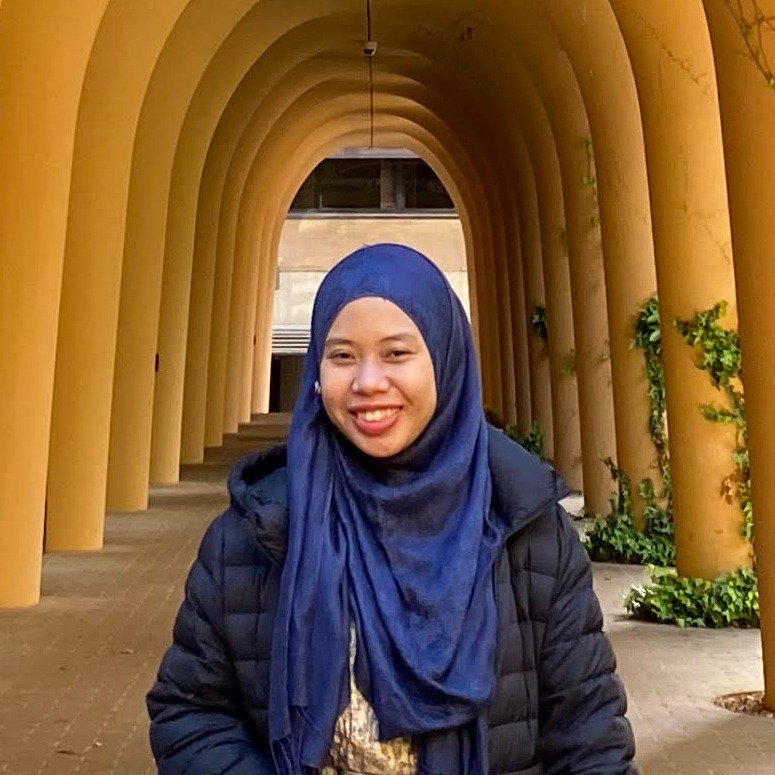Uly Faoziyah
Doctor of Philosophy candidate
Urban Planning

Biography
Uly Faoziyah is a licenced Indonesian regional planner with interests in metropolitan and regional planning, the green economy, and spatial and system dynamic modelling. Supported by the Research Training Program (RTP) Scholarship, she is currently completing her Ph.D. at the Faculty of Architecture, Building, and Planning, The University of Melbourne. In addition, she also works as a university tutor in The Economies of Cities and Regions course. Her interest in the resilience of future cities in the face of crisis has inspired Uly to develop her research. In the PhD research project, Uly focused on observing investment dynamics in cities in Indonesia during the Covid-19 Pandemic, especially related to shifts in spatial concentration and actors' reactions in investment decisions.
Prior to joining The University of Melbourne, she was a junior lecturer at Bandung Institute of Technology, Indonesia and taught several courses, such as Planning Analysis Methods I &; II, Regional Planning Studio, Regional Planning, Rural Planning, Communication and Presentation Technique, Demographic Aspect in Planning. In addition, she is also actively involved as an associate fellow at The Partnership for Australia-Indonesia Research (PAIR), investigating youth and development in South Sulawesi Province, particularly those related to urbanization, digitalization, and community capacity. She also actively contributes to project and community service activities with the Ministry of Industry (Indonesia), Ministry of Environment and Forestry (Indonesia), National Development Planning Agency (Indonesia), United Nations Development Programme (UNDP), Freeport Indonesia, and other organizations. Uly has also published a book and several international journals and proceedings on various topics, such as regional expansion, decentralization, food security, to system modelling and spatial dynamics.
Thesis
Investment in Time of Pandemic: Spatial Patterns and Actor Responses in Re-shaping Indonesian Cities
Investment flows have been acknowledged as a significant driver of urban transformation in a hyper globalized environment. On a global level, it can be reflected through the formation of hierarchies between the world's cities. The critical role of investment is also portrayed at the regional level through changes in periphery regions and the establishment of polycentric urban structures. While at the city level, investment changes the urban landscape through the construction of settlements, retail facilities, hotels, and other public facilities.
However, the rapid changes caused by the COVID-19 pandemic have disrupted various life elements, including investment flows. Before the pandemic, several studies showed capital flows were linked to human mobility. Increased human mobility has encouraged more massive integration and interdependence by expanding cross-border investment flows, while strong investment flows will attract labor flow, either directly or indirectly. In this uncertain situation, the pandemic has limited human mobility extremely. It provides an important part: the extent to which the pattern of investment flows has changed and whether to follow the pattern of human mobility or give a different pattern considering the investment character that can still flow without physical interaction. The dynamics become complex by looking at actors involved in investing, both investors and governments. The pandemic setting provides fear and uncertainty for them to influence investment decisions in the city during pandemic times. It gives the background of this research by focusing on changes in city investment flows and the response between actors that will affect it. Therefore, this study will elaborate on two big questions, namely (1) the extent to which pandemics change investment patterns and (2) how investors' and governments' responses to pandemics can explain differences in investment flows in cities.
This research is expected to make theoretical contributions, not only a new perspective on urban functioning but also a perspective on spatial change through investment in developing countries and decision-making processes related to investment during the pandemic. Then in practice, this research will also contribute to providing input to the government and local governments in mitigating changes in investment decisions on investment attractiveness in the city. It will also contribute to the industry on the extent of government institutions' support for institutions to minimize the impact on businesses.
Selected Publications
- Dewi Sawitri Tjokropandojo, Sri Maryati, dan Uly Faoziyah, Pengantar Metode Analisis Perencanaan [Planning Analysis Method: An Introduction], Penerbit ITB Press, 2021, ISBN 978-623-297-148-6
- Wilmar Salim, Uly Faoziyah, The Effect of Transport Infrastructure on Landuse Change: The Case of Toll Road and High-Speed Railway Development in West Java, Journal Regional and City Planning, Volume 33, No. 1, p. 48-65, April 2022.
- Uly Faoziyah, Wilmar Salim, Seeking Prosperity Through Village Proliferation: An Evidence of the Implementation of Village Funds (Dana Desa) in Indonesia, Journal Regional and City Planning, Volume 31, No. 2, p. 97-121, August 2020.
- Yogi Makbul, Uly Faoziyah, Sudrajati Ratnaningtyas, dan Benedictus Kombaitan, Infrastructure Development and Food Security in Indonesia: The Impact of the Trans-Java Toll Road on Rice Paddy Farmers’ Desire to Sell Farmland, Journal Regional and City Planning, Volume 30, No. 2, p. 140-156, August 2019.
- Uly Faoziyah and Wilmar A Salim, Proliferation pattern in underdeveloped region: is it the real solution to solve underdeveloped region's problem in decentralized Indonesia?, Procedia Social and Behavioural Sciences 227 (2016) p. 824-832, CITIES 2015 International Conference, Intelligent Planning Towards Smart Cities, CITIES 2015. Elsevier Procedia.
- Uly Faoziyah, Who Benefits? The case of the Suramadu Bridge construction, Procedia Social and Behavioural Sciences 227 (2016) p. 60-69, CITIES 2015 International Conference, Intelligent Planning Towards Smart Cities, CITIES 2015. Elsevier Procedia.